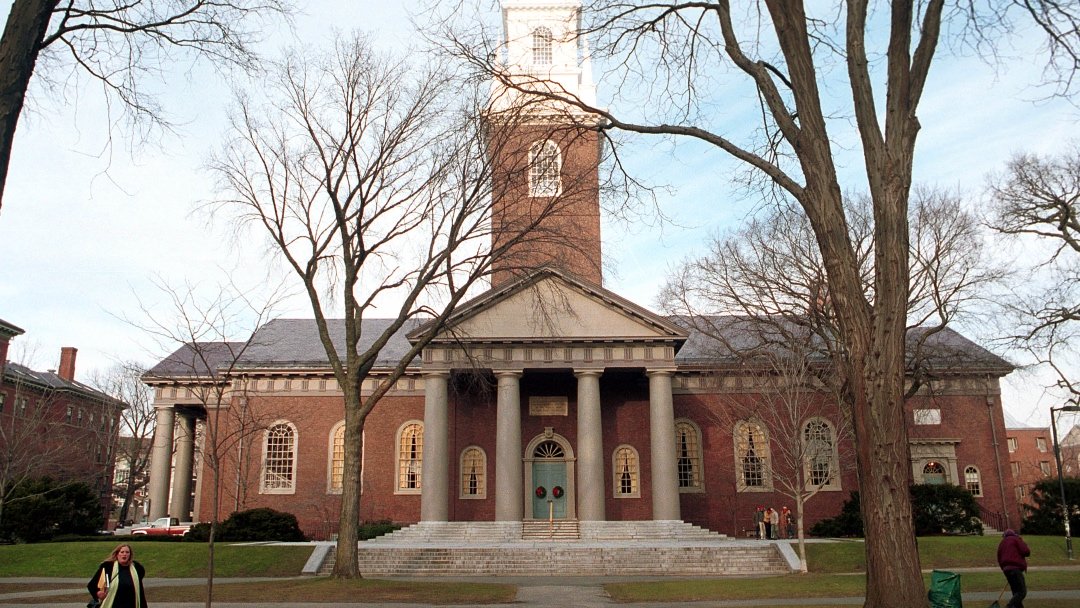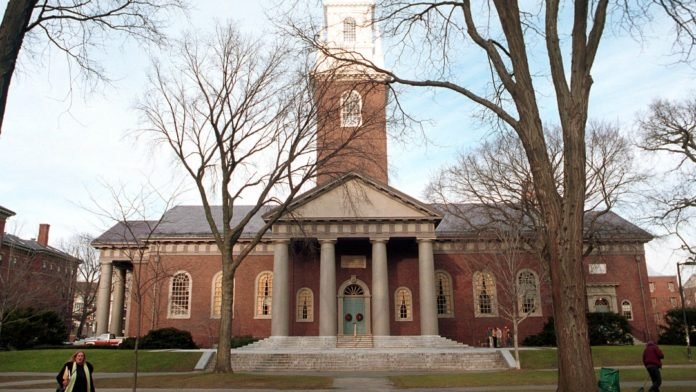[ad_1]
The prime minister of Antigua and Barbuda wants his nation’s 40 acres and a mule — and he believes Harvard University should pay up.
Prime Minister Gaston Browne has written a letter to Harvard President Lawrence Bacow requesting that the Ivy League school acknowledge and justly compensate his nation for the free labor Antigua slaves were forced to perform that ultimately increased the wealth of Isaac Royall Jr., the Antigua slaveholder whose gifted land led to the creation of Harvard Law School, according to The Miami Herald.
Royall’s father left Antigua and relocated in Medford, Mass., with his family in tow as well as 27 slaves. His son, who owned a sugar plantation in Antigua, would also grow up to be a slaveholder. The Isaac Royall family house, today known as “Ten Hills Farms,” has been preserved as a museum and still has its slave quarters intact.
READ MORE: Black woman says Harvard unfairly used her slave ancestor’s photos for nearly 170 years
“Isaac Royall derived his wealth from the labour of persons he enslaved on a plantation in Antigua and Barbuda,” Browne wrote in his Oct. 30 letter to Bacow, according to The Herald. “The bequest to Harvard came from the proceeds of the plantation in Antigua and from the exploitation and sale of human beings that Royall regarded as chattel.”
“Reparation from Harvard would compensate for its development on the backs of our people,” Browne added. “Reparation is not aid; it is not a gift; it is compensation to correct the injustices of the past and restore equity. Harvard should be in the forefront of this effort.”
Prior to the letter, Harvard had not responded to several requests from Browne’s government to compensate the nation for its contributions to the creation of Harvard Law School, which Browne called “shocking if not immoral.”
However, Bacow sent off a response this week that outlined efforts made by the Harvard Corporation to acknowledge the role slavery played in the development of the law school. For example, Bacaw said in 2016, the corporation approved the removal of the law school’s shield, because it contained symbols drawn from the Royall family crest. Also, the corporation erected a stone memorial in the plaza to pay tribute to “the enslaved whose labor created wealth that made possible the founding of Harvard Law School,” he wrote, according to the Herald.
READ MORE: Woman suing Harvard over slave portraits gets key support
“These were significant steps for our entire community,” Bacow wrote, adding that he realizes “there is more work to be done.”
“Harvard is determined to take additional steps to explore this institution’s historical relationship with slavery and the challenging moral questions that arise when confronting past injustices and their legacies,” Bacow added in his response letter.
But Browne is not placated. He told The Herald that he found Bacow’s response to be “disingenuous.”
“He has acknowledged the veracity of our claim that Harvard Law School benefited from endowments funded from profits associated with the enslavement … at Royall Estate in Antigua, but he has failed to address the issue of reparations in a meaningful way,” Browne said. “If they fail to engage meaningfully, we will be forced to pursue all legal remedies available to us to ensure … justice.”
In recent years, other universities have put aside money for reparations to atone for their roles in slavery. Those schools include the Virginia Theological Seminary and Princeton Theological Seminary. In addition, students at Georgetown University voted to increase tuition to compensate the descendants of 272 slaves sold by the Jesuits who headed the school.
“Yet Harvard remains silent,” Browne told the newspaper.
[ad_2]
Source link


